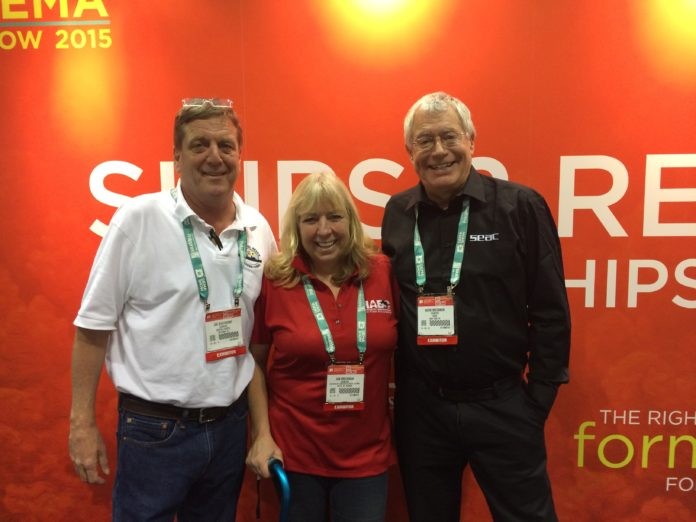With the declining state of the oceans in the headlines, its encouraging to see efforts to relieve the pressure on our reefs. Ships 2 Reefs is an exhibit that DEMA put together at this year’s convention in Orlando to recognize the importance of artificial reefs.
Joe Weatherby from Artificial Reefs International is here to talk with attendees about the benefits of many of the projects that he has been involved with including the sinking of the USS Vandenberg in Key West, Florida, and the HMCS Annapolis in Vancouver, British Columbia.
The importance of holistically embracing the complexities of the entire project is very important to Joe. There are many hurdles and facets to making artificial reefs. Removing and disposing of any environmental hazards in the proper way, fundraising, engineering, and the continued stewardship of the site afterwards are all major factors to a successful project.
“The jury is in,” says Joe, and the results are shown in increased business for local dive shops and the hospitality industry that supports those areas.
Artificial Reefs International is working on developing the future of the SS United States, which if they cannot find a way to keep it afloat, will become an artificial reef to avoid just ending up in a scrap yard.
As a reef, the ship would serve as a monument to the vessel’s service, become a home for ocean life as well as an economic resource for the area near where it is sunk.
As more companies realize the positive economic impacts of artificial reefs for the local economies and the dive industry, it is important to maintain the highest level of quality and ethics around it. Just dumping things in the water can work to create an environment, but doing it thoughtfully and carefully is vital to this movement.
At Ships to Reefs, a group of enthusiastic, environmentally aware, historically conscious divers collaborate to make responsible artificial reefs and keep maritime history. Diver involvement remains at the core of the movement.
Also at the exhibit sharing information with visitors on the movement are George Frankel from Eternal Reefs and Captain John Hazelbaker from the Historical Diving Society. — Craig Harris

